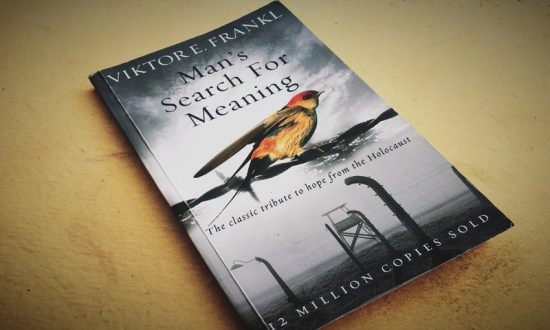1 Feb 2021
|
EA5
Introduction: Finding Meaning in Uncertainty
Life is unpredictable. Challenges arise that are beyond our control—loss, illness, global crises, personal setbacks. In moments of hardship, it’s easy to feel powerless. But as Viktor Frankl, renowned Holocaust survivor and author of Man’s Search for Meaning, taught, our greatest power lies not in controlling our circumstances, but in controlling how we respond to them.
Frankl’s philosophy is more than just a hopeful perspective; it is a psychological framework for resilience. His famous words encapsulate the core idea: “When we are no longer able to change a situation, we are challenged to change ourselves.”
This mindset was at the heart of the 2020 December Gratitude Challenge, our 30-day challenge (you can read more about here). In a time of global adversity, this challenge became a proving ground for Frankl’s philosophy. It demonstrated how shifting one’s internal perspective—rather than waiting for external circumstances to improve—could create real, meaningful change.
The Power of Internal Transformation
Viktor Frankl’s approach to suffering was radical. He believed that meaning could be found in any situation, even in the depths of despair. Unlike traditional models of happiness that focus on external conditions, Frankl argued that the search for meaning is what sustains us through suffering.
The Gratitude Challenge provided an accessible way to apply this philosophy. Every day, those involved were encouraged to reflect on one thing they were grateful for, no matter how small. Over time, the challenge revealed a powerful truth:
Gratitude is not about ignoring difficulties—it’s about choosing where to place your attention.
During the challenge, one participant, Julie, reflected on how gratitude helped her through a difficult winter:
“There were so many things I couldn’t change, and I felt stuck. But this challenge forced me to shift focus. Instead of waiting for life to get better, I started noticing the good that was already there.”
This shift in perception is the essence of Frankl’s teachings. When circumstances feel overwhelming, we often wait for external factors to improve before allowing ourselves to feel better. But as the participants discovered, real strength comes from adjusting how we perceive those circumstances.
Reframing Adversity: Lessons from the Challenge
Throughout the 30 days, different themes emerged that reinforced Frankl’s philosophy. One of the most impactful was Day 17: Reflection.
Zak, the challenge’s creator, shared his thoughts:
“Reflection is the tool we use to make sense of our experiences. When we take the time to look at our struggles differently, we gain control over them. They stop being something that happens ‘to us’ and start being something we can learn from.”
Participants echoed this sentiment. Instead of feeling trapped by their circumstances, they began seeing their challenges as opportunities for growth. Another participant, Marc, noted:
“Before this challenge, I felt powerless over certain things in my life. But gratitude and reflection helped me realise that I always have a choice in how I react.”
This mirrors Frankl’s belief that suffering ceases to be suffering when it finds meaning. The gratitude challenge proved that even in times of struggle, we can reclaim our agency by actively choosing how we respond.
How to Apply Frankl’s Philosophy to Daily Life
Frankl’s insights are not just theoretical—they are deeply practical. Below are three ways to integrate his philosophy into your daily life, inspired by the lessons of the challenge:
Shift Your Focus to What You Can Control
Instead of dwelling on what is outside your control, ask: What can I influence today?
Practicing daily gratitude reinforces this mindset by redirecting attention to what is working, rather than what isn’t.
Reframe Challenges as Opportunities for Growth
When facing adversity, look for the lesson within it.
Ask: How can this challenge make me stronger? What can I learn from this experience?
Develop a Daily Reflection Practice
Take time each day to reflect on your experiences, thoughts, and feelings.
Writing down reflections—especially moments of gratitude—helps reframe difficult situations and build long-term resilience.
Continuing the Journey with the EA5 App
The lessons of the 2020 December Gratitude Challenge live on in the EA5 App, a tool for structured daily gratitude practice. Frankl’s philosophy teaches that growth is not a one-time event—it is a continuous process. Through the EA5 daily gratitude audios, users can reinforce these mindset shifts every day.
The challenge proved that changing your perspective can change your reality. Now, with EA5, that practice can continue—helping more people apply Frankl’s wisdom in their own lives.



